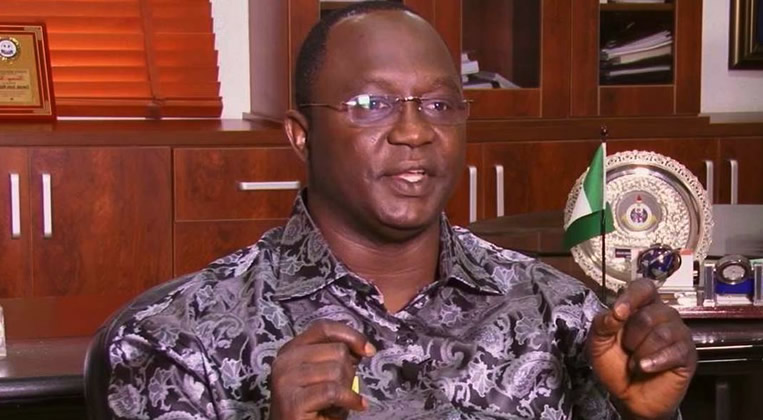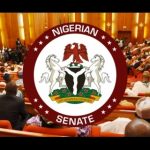By Okechukwu Nnodim, Anozie Egole, OpeOluwani Akintayo, Deborah Tolu-Kolawole, Funmi Fabunmi and Henry Falaiye
Nigeria Labour Congress and the Trade Union Congress have listed conditions for the proposed review of the national minimum wage, saying the continuous rise in inflation and the devaluation of the naira must be checked before the salary increase announced by the Federal Government could be considered.
The organised labour explained that the cost of virtually all consumables in Nigeria had been on the rise, stressing that if this should continue; any amount of money that would be added to the minimum wage might not meet the expectations of workers.
The NLC and TUC spoke against the backdrop of the disclosure by the Minister of Labour and Employment, Chris Ngige, that the Federal Government would soon announce salary increments for civil servants and public officials due to the steady increase in prices of consumer goods.
The PUNCH reports that Nigeria’s headline inflation has continued to rise this year, hitting a new high of 21.47 per cent in November 2022 from 21.09 per cent in October 2022, according to the Consumer Price Index report released by the National Bureau of Statistics this month.
The PUNCH observed that this was the highest rate in about 17 years.
According to the NBS, the reason for the increase year-on-year was the increase in the cost of importation due to the persistent currency depreciation and a general increase in the cost of production, including an increase in energy cost.
The food inflation rate also increased to 24.13 per cent on a year-on-year basis, a 6.92 per cent higher compared to 17.21 per cent recorded in November 2021.
The World Bank recently said Nigeria might have one of the highest inflation rates globally in 2022, with increasing prices diminishing the welfare of Nigerian households.
Speaking at the Presidential Villa on Tuesday, the minister explained that a Presidential Committee on Salaries is currently reviewing salaries with a plan to announce its decision in early 2023.
But reacting to the planned salary review on Wednesday, the Deputy President, NLC, Joe Ajaero, told The PUNCH that the government, employers and labour unions must meet to review the minimum wage before any hike could be considered.
He said, “As we speak now, the price of kerosene, cooking gas, a litre of fuel; any of these items, multiply their cost by 30 days; it is more than the current N30,000 minimum wage.
“So, it is not necessarily the amount of money or quantum you are going to put that will solve our problem. You have to check the rate at which these items are going up, or else within even a day or two, the money will be used up.”
Asked to state what workers expect in terms of the review and the possible minimum wage that the government should consider, Ajaero replied, “I don’t think we should put the cart before the horse.
“But if they have used the word ‘review’, it then means the tripartite body will meet and factor in all the issues, whether it is based on the cost of living, as we will also look at the inflationary trend and the devaluation of the currency.
“All these things must be brought to the table in the course of the review. So, one can’t just give figures on the amount at this point in time. If it is a review, I think it will be a comprehensive review in line with the prevailing situation.”
Providing explanation on what he meant by the tripartite body, Ajaero said, “It includes the government, labour and employers, which are the parties that constitute the legs in the industrial relation tripod. They should be present when this issue is being discussed.”
When pushed further to project an amount that should be considerable at the moment, bearing in mind the current economic situation in Nigeria, the NLC deputy president insisted that it would not be possible to give a figure because of the country’s galloping inflation.
He said, “The inflationary trend is not constant and that is why it becomes difficult to project at any point in time. From the level of inflation and the way it eroded the current minimum wage, it will be difficult to project in percentages what should be good for the review.
“This is because when you multiply the cost of all consumables by 30 days, what you get seems to be higher than the current minimum wage, for instance, the price of a loaf of bread multiplied by 30 days, is more than the minimum wage.
“If you don’t check inflation by making it stay at a nearly constant rate, if it continues to go up, there’s no amount of increase in naira terms that will assuage the level of devaluation of the currency and the take-home pay of the workers.”
Ajaero added, “Another thing is that if the naira continues to depreciate in value on a daily basis, it will be tough to project an amount, unless we are going to look at a situation where the minimum wage of workers would be self-adjusted such that if the inflation rate rises at a particular percentage, the minimum wage will adjust too based on that percentage.”
Source: The Punch








